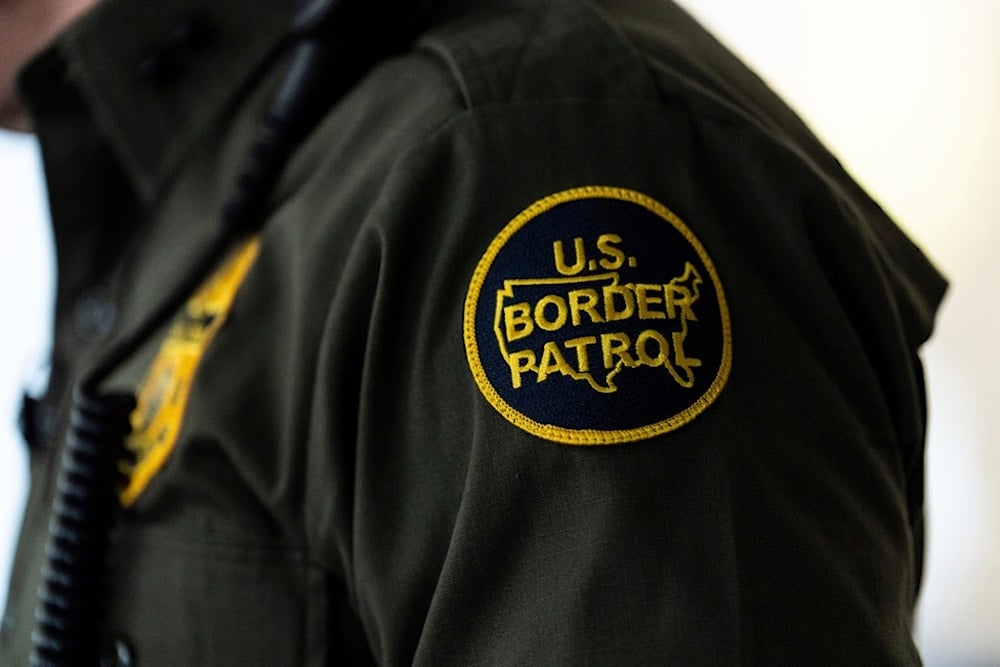Supreme Court lets Trump resume ICE raids in Southern California
The US Supreme Court allowed Trump’s administration to resume ICE raids in California, suspending a ruling that barred stops based on race or language.
-

Gregory Bovino, chief patrol agent of the US Border Patrol's El Centro Sector, stands in a conference room before an interview with The Associated Press in Los Angeles, Monday, August 25, 2025. (AP)
The US Supreme Court on Monday allowed President Donald Trump’s administration to resume Immigration and Customs Enforcement (ICE) raids in Southern California, permitting stops based on broad criteria such as Latino appearance or use of Spanish.
In a 6-3 decision, the court temporarily suspended a July ruling by US District Judge Maame Ewusi-Mensah Frimpong, who had concluded that ICE’s tactics were likely unlawful because agents detained people without reasonable suspicion, often relying on racial or linguistic stereotypes.
Writing for the majority, Justice Brett Kavanaugh argued that such factors could amount to “reasonable suspicion” under the law. “Importantly, reasonable suspicion means only that immigration officers may briefly stop the individual and inquire about immigration status,” Kavanaugh wrote. “If the person is a US citizen or otherwise lawfully in the country, that individual will be free to go after the brief encounter.”
The decision drew a sharp dissent from Justices Sonia Sotomayor, Elena Kagan, and Ketanji Brown Jackson. Sotomayor criticized the ruling as “entirely unexplained” and warned: “We should not have to live in a country where the Government can seize anyone who looks Latino, speaks Spanish, and appears to work a low-wage job. Rather than stand idly by while our constitutional freedoms are lost, I dissent.”
ICE to continue racial profiling
Judge Frimpong, appointed by President Joe Biden, had barred ICE officers from using factors such as race, language, or occupation to justify detentions, describing the agency’s actions as “roving patrols” that violated constitutional protections.
The Trump administration appealed the decision to the 9th Circuit Court of Appeals, but a three-judge panel declined to suspend Frimpong’s order, prompting the administration to take the case to the Supreme Court. Monday’s ruling allows the contested ICE practices to continue while litigation moves forward.
Back in June, The Guardian reported that families arrested during the recent ICE raids in Los Angeles were reportedly confined in office basements without sufficient food, water, or ventilation. The Immigrant Defenders Law Center (ImmDef), which is offering legal aid, said one family, including three young children, was held for 48 hours inside an administrative building following their detention after an immigration court hearing.
The children, one as young as three, were given only a bag of chips, a small box of animal crackers, and a carton of milk for an entire day. On their first day, agents told the family there was no water available.
Rapid deportations and due process violations
Many arrested individuals were temporarily held in improvised jail spaces, courthouses, and office buildings, before being transferred to detention centers in the California high desert or Texas. Attorneys reported that family deportations in California happened rapidly, with some individuals denied access to legal representation.
In one case, a man was deported to Mexico just hours after his arrest without paperwork or a hearing. In another, agents told a detainee to sign a form to see a lawyer, believed by advocates to have been a deceptive way to obtain consent for voluntary departure. “Within hours, he was across the border,” said Johansen-Méndez, as reported by The Guardian.

 4 Min Read
4 Min Read










